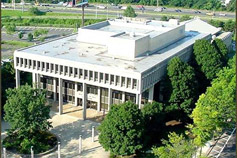Senior United States District Judge for the District of Connecticut
This Chambers will remain open until December 31, 2019.
Staff Information

BRIEN McMAHON FEDERAL BUILDING
United States Courthouse
915 Lafayette Boulevard - 2nd Floor Annex
Bridgeport, Connecticut 06604
Location: Courtroom 3
